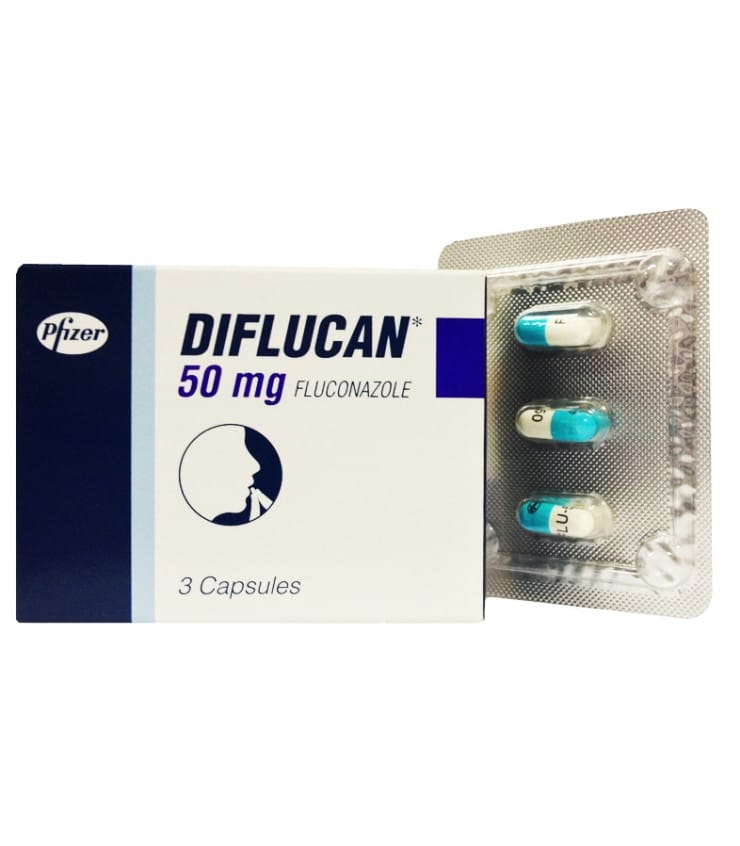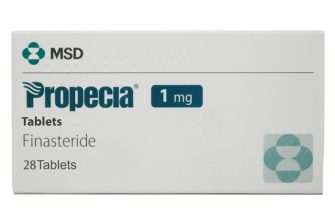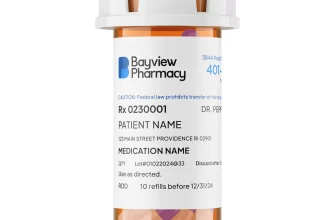Ordering a Diflucan sample is a straightforward process that can assist in addressing your medical needs efficiently. Start by consulting your healthcare provider to determine if a sample is appropriate for your condition. They can offer guidance based on your unique health profile.
When you receive the green light from your doctor, explore reputable online pharmacies or local drugstores that provide samples of Diflucan. Look for pharmacies that require a prescription to ensure you’re getting a legitimate product. Check for customer reviews and confirm their licensing to establish trustworthiness.
Once you’ve identified a suitable pharmacy, you can proceed with your order. Be prepared to provide necessary information, including your prescription and possibly some personal details to facilitate the transaction. Keep an eye out for promotional offers or discounts that may be available for first-time customers, as these can provide additional savings.
After you complete your purchase, monitor your health closely while using Diflucan. If you experience any side effects or have concerns about your treatment, reach out to your healthcare provider without hesitation. This proactive approach will support your well-being as you manage your condition effectively.
- Buy Diflucan Sample
- Understanding Diflucan: What You Need to Know
- How to Obtain a Diflucan Sample Safely
- Look for Clinical Trials
- Visit a Pharmacy
- Diflucan Dosage Guidelines for Effective Treatment
- Dosage for Specific Conditions
- Adjustments for Special Populations
- Common Uses of Diflucan in Medical Practice
- Potential Side Effects of Diflucan: What to Watch For
- Common Side Effects
- Serious Side Effects
- Conclusion
- Comparing Diflucan with Other Antifungal Medications
- Efficacy Against Specific Fungi
- Side Effects and Drug Interactions
- Where to Find Reliable Diflucan Sample Programs
- Online Pharmaceutical Services
- Healthcare Providers
- Understanding Prescription Requirements for Diflucan Samples
- Consultation with Your Healthcare Provider
- Pharmacy Protocols
- Tips for Discussing Diflucan with Your Healthcare Provider
- Ask Specific Questions
- Clarify Follow-Up Plans
Buy Diflucan Sample
You can buy a Diflucan sample to experience its benefits in treating fungal infections. Look for reputable online pharmacies or local drugstores that offer trials or samples. Check for any available discounts or patient assistance programs.
- Research pharmacies: Ensure the pharmacy is licensed and offers genuine products.
- Consult a healthcare professional: Discuss with your doctor if Diflucan is right for you and inquire about obtaining a sample.
- Look for patient programs: Some pharmaceutical companies provide sample medications directly or through healthcare providers.
- Compare prices: Investigate prices at different pharmacies to find the best deal for your purchase.
When requesting a sample, be prepared to provide your medical information and the reasoning for your need. This can streamline the process and help you access the medication sooner. Keep track of your symptoms while using the sample; this will aid in assessing the medication’s effectiveness with your healthcare provider.
Finally, ensure you understand the prescribed dosage and follow up with your healthcare provider to discuss your experience with Diflucan. Your health and safety should always be the top priority.
Understanding Diflucan: What You Need to Know
Diflucan (fluconazole) is an antifungal medication primarily used to treat infections caused by fungi and yeast. It tackles conditions like vaginal yeast infections, oral thrush, and certain other fungal infections. When considering purchasing Diflucan, keep these key aspects in mind.
Dosage is crucial. Consult a healthcare professional to determine the right amount for your condition. Common dosages range from 150 mg for a single dose for vaginal candidiasis to higher doses for systemic infections. Stick to the recommended dosage to avoid complications.
Common side effects include nausea, headache, dizziness, and abdominal pain. Serious reactions can occur but are rare. Monitor your health during treatment, and reach out to a doctor if you experience severe symptoms such as rash, difficulty breathing, or swelling.
Diflucan can interact with various medications. Inform your doctor about all prescriptions, over-the-counter drugs, and supplements you take. This helps in avoiding potential adverse effects or reduced effectiveness of the treatment.
Pregnant or breastfeeding individuals should discuss potential risks with a healthcare provider before starting Diflucan. Safety during these times requires careful consideration of the benefits versus the possible risks.
| Condition Treated | Common Dosage |
|---|---|
| Vaginal yeast infection | 150 mg (single dose) |
| Oral thrush | 200 mg on the first day, then 100 mg daily |
| Systemic fungal infections | Initial doses may vary, often starting at 400 mg |
Over-the-counter options for antifungal treatments may not be as effective as prescription Diflucan. If symptoms persist or worsen, seeking prescription treatment is advisable. Always prioritize professional guidance for the best results.
To purchase Diflucan safely, consult a licensed pharmacist or healthcare provider, especially for a sample. Avoid unauthorized online sellers to minimize risks associated with counterfeit medications. Your health deserves proper attention and care.
How to Obtain a Diflucan Sample Safely
Consult your healthcare provider first. Discuss your symptoms or concerns related to fungal infections, and inquire about the possibility of receiving a Diflucan sample. A doctor can provide a prescription and guide you on the appropriate dosage.
Look for Clinical Trials
Search for local clinical trials involving Diflucan. Websites like ClinicalTrials.gov list studies where participants may receive free medication, including samples. Contact trial coordinators for eligibility requirements.
Visit a Pharmacy
Some pharmacies participate in programs that provide samples of certain medications. Ask your local pharmacist if Diflucan samples are available or if they can suggest another way to obtain them safely.
Diflucan Dosage Guidelines for Effective Treatment
The standard adult dosage for Diflucan (fluconazole) in treating most infections is typically 200 mg on the first day, followed by 100 mg daily for the duration of treatment. For vaginal candidiasis, a single 150 mg dose often suffices.
Dosage for Specific Conditions
- Candidemia: Start with 800 mg on day one, then continue with 400 mg daily.
- Oropharyngeal Candidiasis: 200 mg on the first day, then 100 mg daily for at least two weeks.
- Esophageal Candidiasis: 200 mg on the first day, then 100 mg daily for at least three weeks.
- Cryptococcal Meningitis: 400 mg on day one, followed by 200 mg daily, usually for a minimum of 10-12 weeks.
Adjustments for Special Populations
- Renal Impairment: Dosage adjustments may be necessary, particularly for those with creatinine clearance under 50 mL/min. Reduce the dose to half the normal recommended dosage.
- Pediatric Patients: Dosages vary by weight. The typical initial dose is 6-12 mg/kg, adjusted based on the infection being treated.
Monitor your response to treatment closely. If symptoms persist beyond the expected duration, consult your healthcare provider for potential reassessment of the treatment plan. Following these guidelines can enhance patient outcomes and minimize the risk of developing resistance.
Common Uses of Diflucan in Medical Practice
Diflucan, or fluconazole, is utilized primarily for the treatment of fungal infections. It effectively combats various types of candida species, making it a preferred choice in cases of vaginal candidiasis. Administering Diflucan as a single-dose oral treatment leads to quick relief from symptoms.
In addition to vaginal infections, Diflucan proves beneficial in treating oropharyngeal and esophageal candidiasis, especially in immunocompromised patients. This includes individuals with HIV/AIDS or those undergoing chemotherapy. The medication quickly reduces fungal load, aiding recovery.
Diflucan also plays a key role in managing cryptococcal meningitis. It is commonly prescribed in conjunction with other antifungal medications, particularly for patients with a compromised immune system. The recommended duration of treatment generally spans several weeks, depending on the severity of the infection and the patient’s response.
Prophylactic use of Diflucan is another common practice for patients at high risk of fungal infections, such as those undergoing bone marrow transplants. By preventing infections, healthcare providers can improve patient outcomes during vulnerable periods.
Healthcare professionals may also prescribe Diflucan for dermatophyte infections, including tinea capitis and tinea pedis, especially when topical treatments fail to yield results. Monitoring liver function is advisable, as prolonged use can affect liver enzymes.
In summary, Diflucan serves multiple roles in effectively managing and preventing a variety of fungal infections, ensuring a critical tool in medical practice for maintaining patient health.
Potential Side Effects of Diflucan: What to Watch For
Stay vigilant for the following side effects when taking Diflucan. While most people tolerate the medication well, some may experience adverse reactions.
Common Side Effects
- Nausea
- Headache
- Dizziness
- Diarrhea
- Stomach pain
If these symptoms occur, they are often mild. Monitor how you feel and consult your healthcare provider if they persist or worsen.
Serious Side Effects
Be aware of more severe reactions that require immediate medical attention:
- Severe allergic reactions, including rash, itching, or swelling
- Unusual bleeding or bruising
- Signs of liver problems, such as yellowing of the skin or eyes
- Rapid heart rate or severe fatigue
Should you notice any of these signs, seek medical advice without delay. It’s essential to communicate any changes in your health to your provider during treatment.
Conclusion
Knowing potential side effects helps you manage your health effectively while taking Diflucan. Regular check-ins with your healthcare provider can ensure safe usage and monitor for any concerns.
Comparing Diflucan with Other Antifungal Medications
Diflucan, or fluconazole, stands out due to its broad-spectrum activity against various fungal infections. It specifically targets yeast, particularly Candida species, making it a go-to choice for treating conditions like vaginal yeast infections and oral thrush. Its oral form and good absorption profile simplify administration for many patients.
Efficacy Against Specific Fungi
When comparing Diflucan to other antifungals, such as itraconazole and voriconazole, the spectrum of activity becomes key. Itraconazole has a broader range against dermatophyte infections but requires a more intricate dosing schedule. Voriconazole is often preferred for invasive aspergillosis but may come with more significant side effects and monitoring requirements. For common yeast infections, Diflucan proves effective while being easier to use.
Side Effects and Drug Interactions
Diflucan is generally well-tolerated, with common side effects being mild gastrointestinal upset and headache. In contrast, itraconazole can cause cardiac issues in predisposed individuals. Voriconazole may result in visual disturbances and hepatotoxicity. As with any medication, assessing potential drug interactions is crucial. Diflucan interacts with various medications, but its profile is manageable compared to others like voriconazole, which has a more extensive interaction list.
Where to Find Reliable Diflucan Sample Programs
Pharmacies are a primary resource for obtaining Diflucan samples. Many local and chain pharmacies offer sample programs for patients who apply. Speak with your pharmacist about any available options and eligibility requirements.
Online Pharmaceutical Services
Various online pharmaceutical services provide access to Diflucan samples. Look for reputable sites that specialize in medication delivery and review their policies on samples. Verify their legitimacy through customer reviews and ratings.
Healthcare Providers
Your healthcare provider may have access to Diflucan samples directly from pharmaceutical representatives. Discuss your needs during your appointment, and ask if they can provide you with a sample. This can be a straightforward way to access the medication without cost.
| Source | Procedure | Notes |
|---|---|---|
| Local Pharmacies | Inquire at the counter | Check for availability |
| Online Pharmacies | Search and verify | Ensure they are licensed |
| Healthcare Providers | Discuss during visits | Dependent on sample stock |
Understanding Prescription Requirements for Diflucan Samples
To obtain a Diflucan sample, a prescription from a licensed healthcare provider is necessary. This ensures that the medication is appropriate for your condition and that potential interactions with other treatments are considered. Always consult with your doctor to evaluate your symptoms and confirm that Diflucan is the correct choice.
Consultation with Your Healthcare Provider
During your appointment, provide a comprehensive medical history. Discuss any current medications, allergies, and previous treatments. This information helps the provider determine if Diflucan is suitable for your specific case. If approved, the provider will write you a prescription that you can present at the pharmacy to obtain your sample.
Pharmacy Protocols
Upon receiving your prescription, the pharmacy may have specific procedures in place for dispensing samples. It’s advisable to contact them in advance to confirm availability and inquire about any additional requirements, such as identification or proof of eligibility for the sample. By understanding these procedures, you can streamline the process and ensure a smooth experience in obtaining your Diflucan sample.
Tips for Discussing Diflucan with Your Healthcare Provider
Prepare a list of symptoms you are experiencing. Clearly describe how they affect your daily life and any patterns you notice. This will help your provider understand your situation and evaluate whether Diflucan is suitable for you.
Discuss your medical history, including any allergies or previous reactions to medications. Mention any current medications you’re taking to avoid potential interactions. This transparency aids in a safe and informed treatment plan.
Ask Specific Questions
Inquire about the purpose of Diflucan for your condition and how it works. Understanding the mechanism can ease concerns and increase your comfort level with the treatment. Ask about the expected duration of the course and what results you should look for.
Question possible side effects and what to do if they arise. Knowing what to expect can help you manage any issues and communicate effectively with your provider if problems occur.
Clarify Follow-Up Plans
Establish clear follow-up steps, including when to return for check-ups or evaluations. Confirm how your progress will be monitored and the criteria for assessing treatment effectiveness. This keeps you engaged and informed throughout your treatment.
Be open about any concerns regarding cost or access to Diflucan. Your provider may have alternatives or resources to assist you, ensuring you receive the care you need without financial strain.










